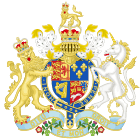Engraving Copyright Act 1734 facts for kids
| Act of Parliament | |

|
|
| Long title | An act for the encouragement of the arts of designing, engraving, and etching historical and other prints, by vesting the properties thereof in the inventors and engravers, during the time therein mentioned. |
|---|---|
| Citation | 8 Geo 2 c 13 |
| Territorial extent | Great Britain |
| Other legislation | |
| Amended by | Engraving Copyright Act 1766 |
| Repealed by | Copyright Act 1911 |
|
Status: Repealed
|
|
| Text of statute as originally enacted | |
The Engraving Copyright Act 1734 was a special law made in Great Britain. It was also known as the Engravers' Copyright Act. This law was created to protect artists who made engravings. An engraving is a type of art where a picture is carved onto a surface, often metal, to make prints.
This Act is sometimes called Hogarth's Act. It got this name because a famous artist named William Hogarth helped push for this law. He worked with other engravers to make sure their art was protected.
Contents
What Was the Engraving Copyright Act?
This law was passed on June 25, 1735. Its main goal was to give legal protection to people who created engravings. Before this law, it was easy for others to copy and sell an artist's engravings without permission.
The Act gave artists the right to control their original designs. This meant that if you created an engraving, others could not just copy it. This was an early form of copyright protection for artists. Copyright is a legal right that protects creators of original works. It stops others from using their work without permission.
Why Was This Law Needed?
In the 1700s, engravings were a popular way to share pictures and stories. Artists spent a lot of time and effort making them. However, once an engraving was made, anyone could easily make copies. This meant artists often didn't get paid fairly for their hard work.
The Engraving Copyright Act helped solve this problem. It made sure that artists had rights over their own creations. This encouraged more people to become engravers and create new art.
Who Was William Hogarth?
William Hogarth was a very famous English painter and engraver. He lived from 1697 to 1764. Hogarth was known for his detailed and often funny pictures. These pictures showed scenes from everyday life in London.
He was very passionate about protecting artists' rights. He saw how his own work, and the work of his friends, was being copied without permission. Because of his efforts, this important law was created.
What Happened to the Act?
The Engraving Copyright Act 1734 was an important step for copyright law. It was part of a series of laws called the Copyright Acts 1734 to 1888. These laws slowly built up more protection for creators.
However, this specific Act was later removed. It was repealed by the Copyright Act 1911. When a law is repealed, it means it is officially cancelled or taken out of effect. The 1911 Act brought together and updated all the older copyright laws into one new system.
 | Precious Adams |
 | Lauren Anderson |
 | Janet Collins |

